In situ
Three dresses
Traveling exhibition at the Stavelot Cultural Center
Three large flags fly in the ancient part of the Stavelot Abbey; echoing the town myths and inspired both by heraldic art and medieval hangings, they have become narrative and celebratory objects. Based on historical documents such as the Stavelot Bible, an Illuminated manuscript composed between 1093 and 1097, animal, mythological and ornamental figures emerge on a large scale, such as the figure of the Tetramorph, also present in the 14th-century Apocalypse tapestry.
The assembly of plastic sheeting and raw linen canvas brings into play the fragility of these materials in the face of changeable weather. The diversity of techniques used, including Batik* and thermal welding, also aim to multiply viewpoints and include other cultures or traditions than those of medieval Europe. Made in excess and hoisted onto masts with the help of members of the cultural centre, the flags wave before the arrival of torrential rain, like a cinematographic image of a world preparing for battle.
* Dyeing process in which certain parts of the fabric are previously coated with wax, so as to retain their original color. In Malaysia, the word 'Batik' means 'dot; to dot, to draw'."
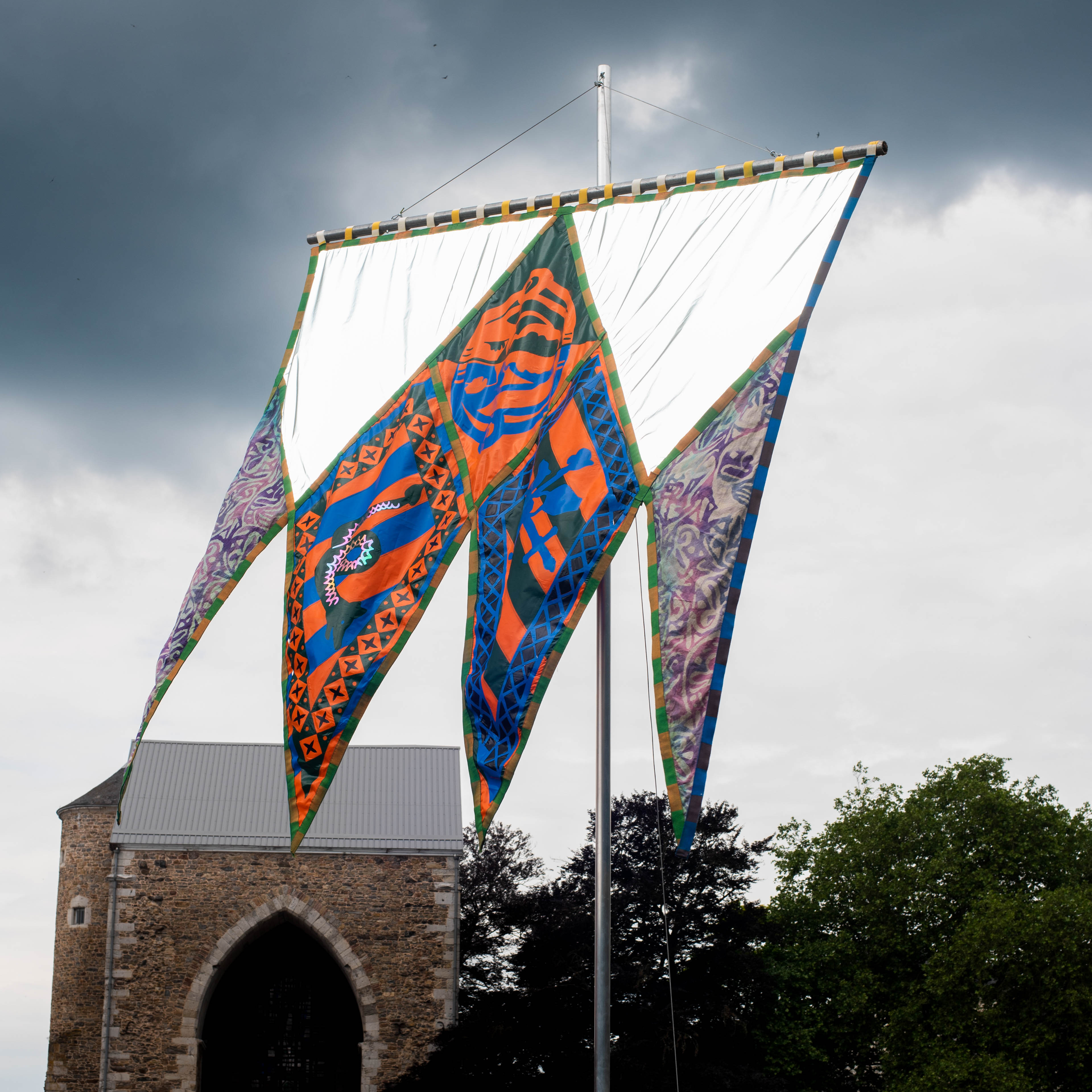
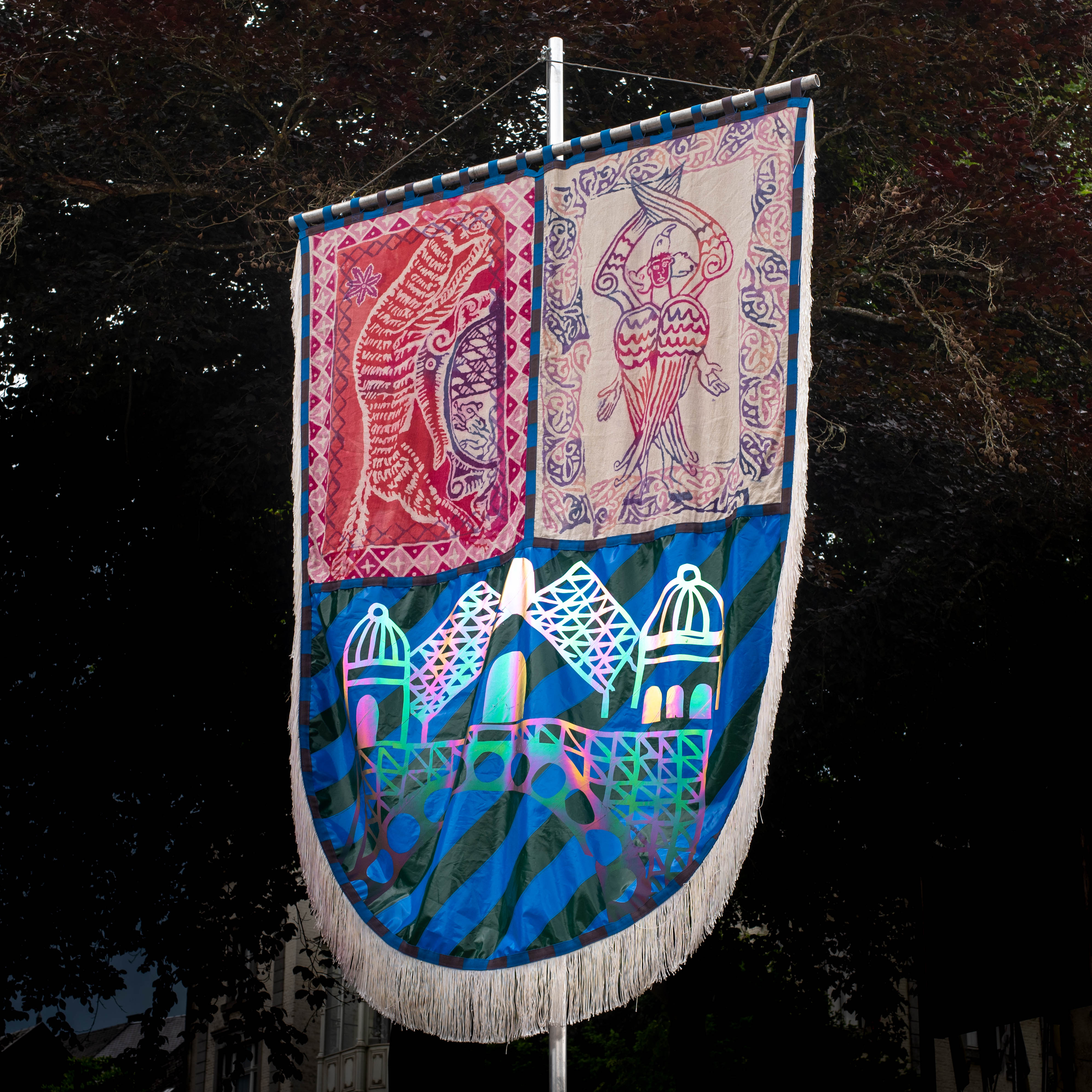
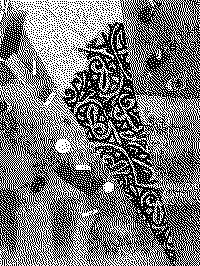
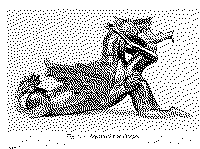
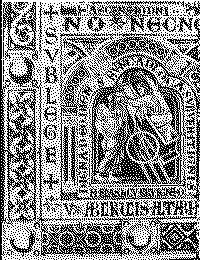
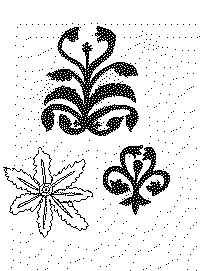
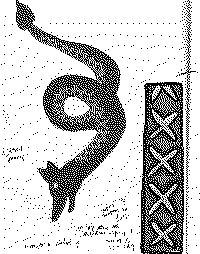
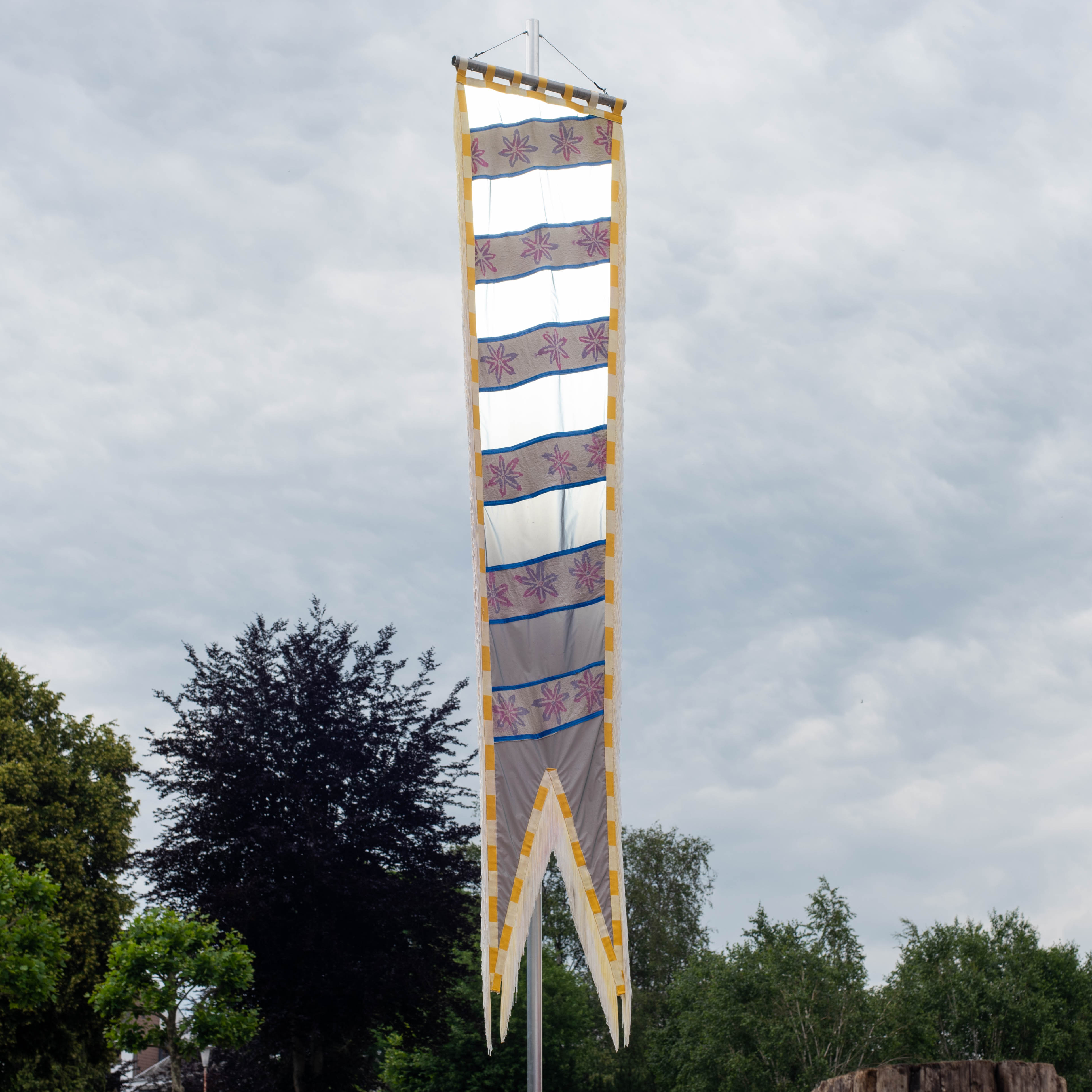
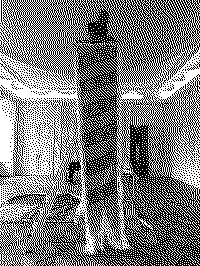
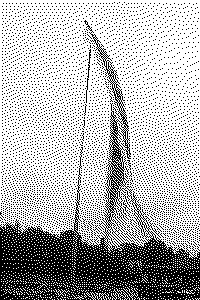
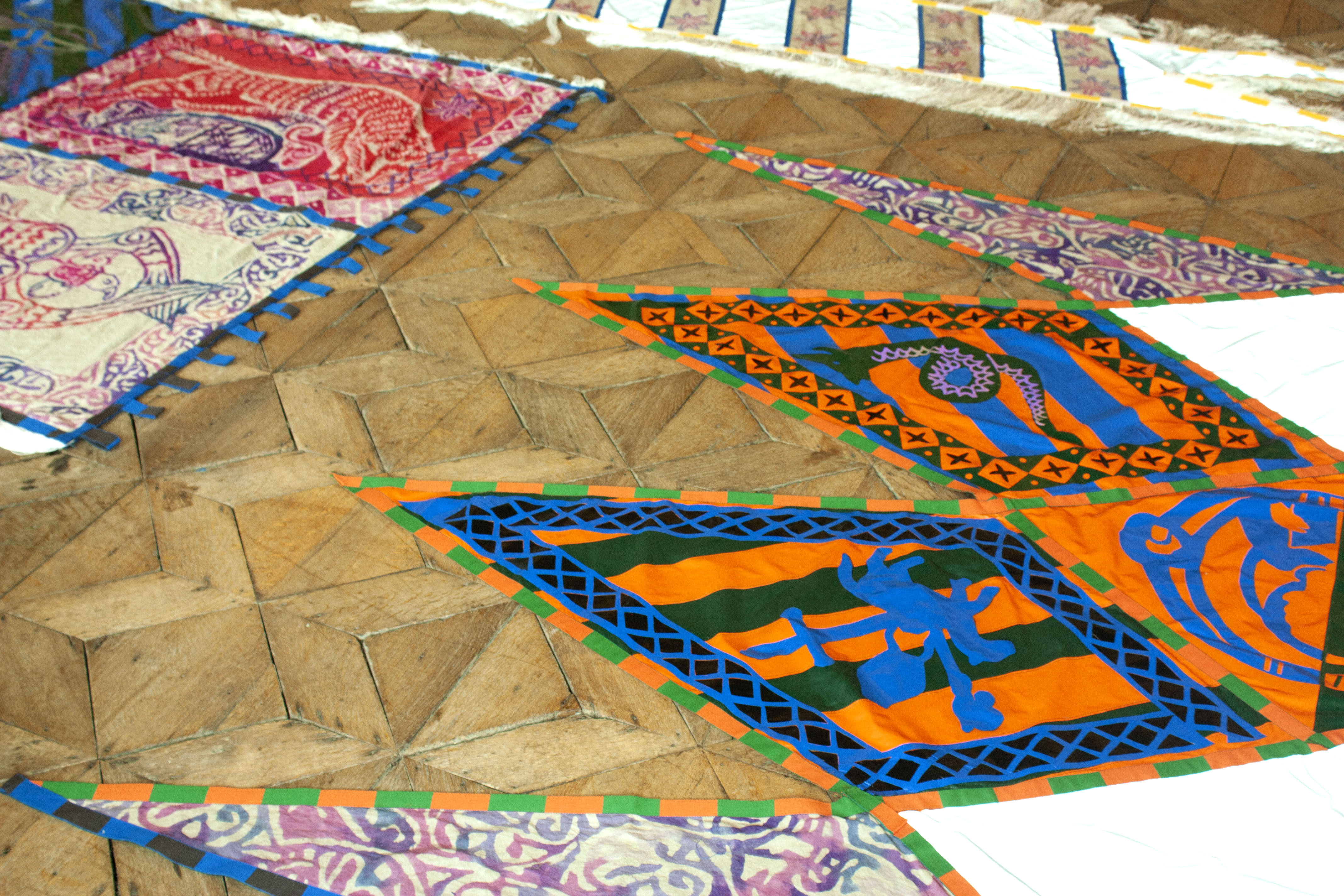
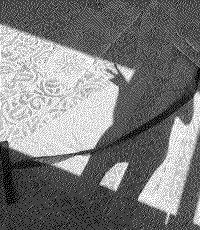
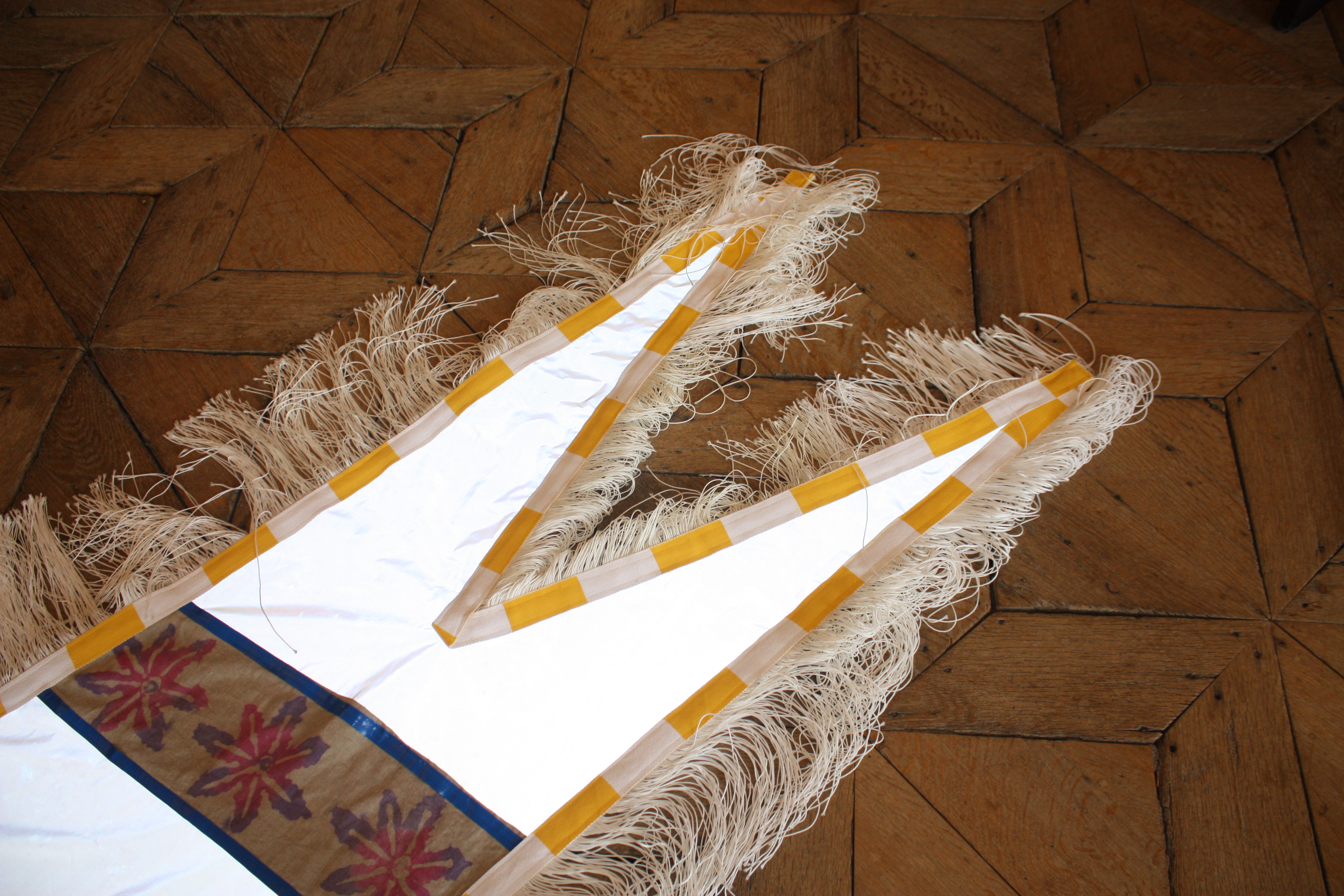
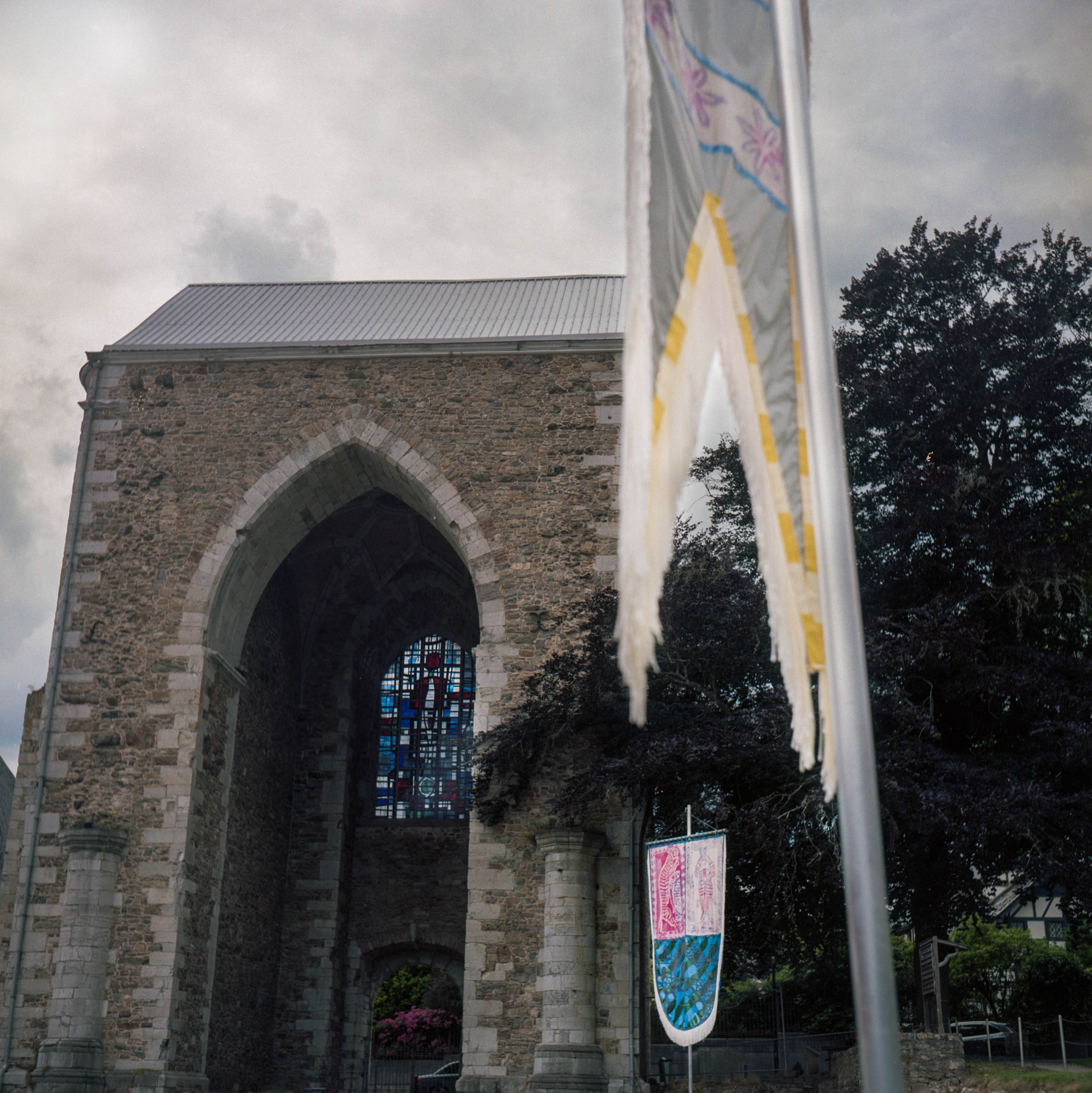
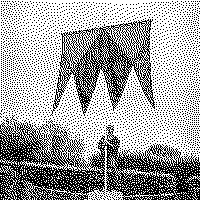
- View of the installation at the Abbey of Stavelot © Adèle Grégoire 300 x 300 cm
- Fabric: 100% linen, reflective and iridescent fabric, judo belt, polyamide ropes, cold dye 250 x 300 cm © Adèle Grégoire
- idem 100 x 400 cm
- Final preparations in the Abbey before the flags are hoisted.
- Detail of the reflective fabric
- Final installation of the flags in the ancient ruins of the Abbey